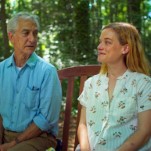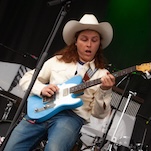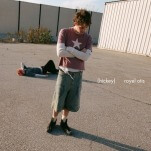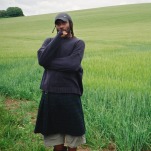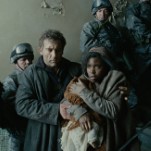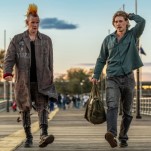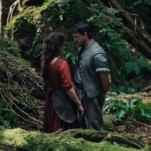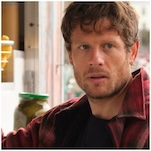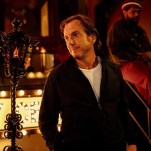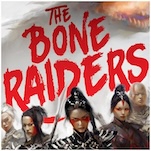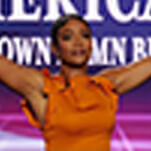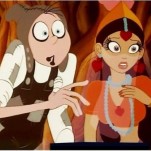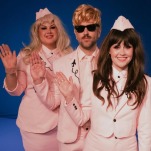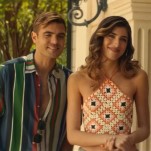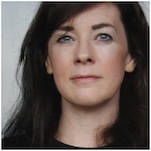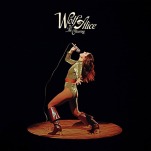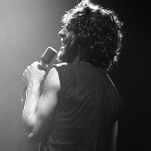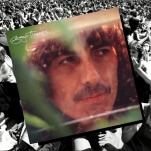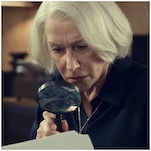The Fantastic Four: First Steps Is One Giant Leap Forward For Marvel Studios
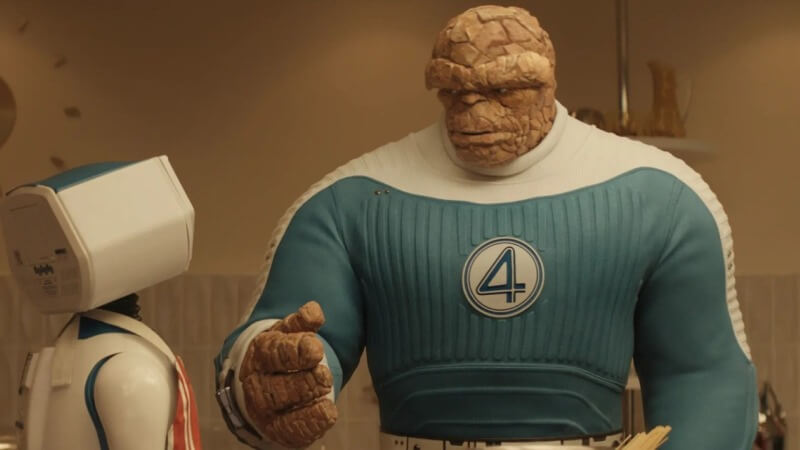
Given the notoriously lousy track record of Fantastic Four movies—to say nothing of the dreary post-Endgame slump of the Marvel Cinematic Universe—all Matt Shakman’s The Fantastic Four: First Steps had to do to score a win was not be a disaster. Marvel’s revered First Family, created by Stan Lee and Jack Kirby in 1961, finally makes their MCU debut with the bar set embarrassingly low. Yet there they are, on the screen, not content to merely clear that bar but rocket over it with the intrepid adventurousness for which they are world famous.
More than a solid MCU entry, First Steps is among the most vivid, peculiar, and emotionally present superhero films of the past decade. It will make one heck of a double-feature with James Gunn’s Superman, as it also unabashedly shares that movie’s gee-whiz Silver Age earnestness. The strongest part of its function, especially as a critical entry in its franchise, is that its heroes feel like they’re off in the boonies doing their own weirdo thing. In a stroke of creative self-awareness, this iteration of the Four has been isolated from the typical MCU morass, free from continuity encumbrances and empty Whedonisms to set a fresh course and a new tone.
It helps that Shakman, who brought a retro-chic, TV-static mournfulness to WandaVision, knows how to draw from the past for inspiration without getting stuck in it. He takes a similar approach in First Steps, infusing Space Age optimism from an idealized halcyon age, from its Sears catalog set design to the impeccably costumed and diverse extras in this alternate New York City, who are often seen celebrating their heroes, much like the world did with the astronauts who first walked on the moon.
The efforts of Reed Richards (Pedro Pascal), siblings Sue and Johnny Storm (Vanessa Kirby and Joseph Quinn), and Ben Grimm (Ebon Moss-Bachrach) are worthy of this admiration. Their origin story, beamed in via an old-school ABC newsreel (hosted by Mark Gatiss), is boilerplate but brisk: cosmic rays, miraculous powers, and a world forever changed as a consequence. It’s refreshing to see how society has been reshaped for the better by the Four’s intelligence and decency—here, New York hums with flying cars, science spires, and a sense of hope, jejune as it may seem to those of us frowning from our sticky theater seats burdened by non-stop newsfeed anxieties. Here, the Fantastic Four embody unglamorous virtues: celebrity as public service, monster-thwarting as diplomacy (they establish a tenuous peace with Paul Walter Houser’s Mole Man), and scientific discovery as a moral good.
-

-

-

-

-

-

-

-

-

-

-

-

-

-

-

-

-

-

-

-

-

-

-

-

-

-

-

-

-

-

-

-

-

-

-

-

-

-

-

-

